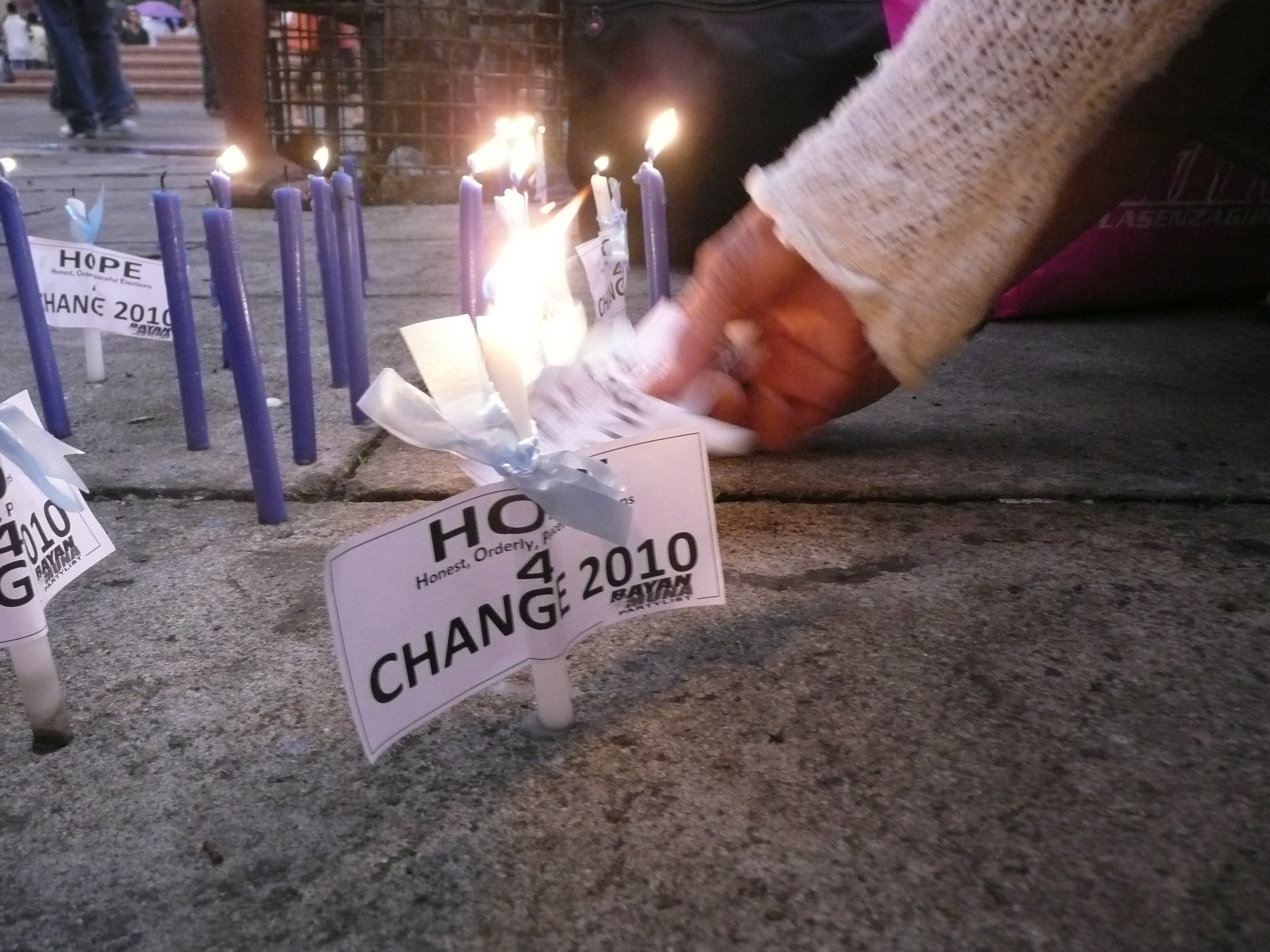Ballots and Bullets in the Philippines
Ballots and Bullets in the Philippines

MANILA, PHILIPPINES--As the Philippines inches toward the 2010 presidential elections, talk across Manila spins around the prospective postponement of the popular vote. Potentially fatal technical glitches in the electronic voting machines, that will count the first automated vote in the Philippines, are stoking fears that the election will be derailed.
Although recent statements to the local media by the Commission on Elections in the Philippines, indicate that the election will move forward.
“We are 98-percent ready,†outlines James Jimenez, spokesperson for the Commission on Elections, speaking on serious programming malfunctions in the privately-run voting system, leading to inaccurate ballot readings in official tests prior to election day.
Aside from a potentially chaotic postponement of the national vote, elections in the Philippines are also being shaped by political repression across the archipelago. As the political crisis grows increasing numbers of military troops are being deployed across the metro Manila region, hundreds of soldiers stationed in civilian areas by the Armed Forces’ National Capital Region Command.
Social movements in the country are appealing for mass protests in response to any electoral delay, driven by fears that an electoral crisis will allow the highly unpopular outgoing President Gloria Macapagal-Arroyo, strongly backed by the U.S., to remain in office despite the constitution of the Philippines that limits presidential terms to one.
In the lead-up to election day thousands gathered for mass at the historic Baclaran church in Manila this Wednesday, a national congregation that has long provided sanctuary to voices of political dissent in the Philippines, dating back decades to the era of U.S.-backed dictator Ferdinand Marcos.
“As our church was a space for sanctuary during the Marcos-era, today our church will continue to be a space for sanctuary, while standing against corruption or political repression, while supporting forces struggling for change in the Philippines,†explains Fr. Ino Cueto, a priest at Baclaran church.
Thousands streamed out on to the streets after the mass service at Baclaran, participating in a vigil sponsored by the grassroots political party Bayan Muna, countless candles were lit on the street under a banner reading, “Hope for change! No to election failure, fraud or violence!â€
“Thousands are attending this mass and clearly the people are concerned about the upcoming elections,†outlines Neri Javier Colmenares, human rights lawyer and congressional representatives for Bayan Muna party-list, “still we are facing a vicious campaign of political repression against political parties on the left, hundreds of our activists from Bayan Muna have faced illegal detention and also have been killed by forces directly linked to the government.â€
Political parties like Bayan Muna in the Philippines emerge from grassroots social movements, linked historically to the national struggle against U.S.-backed dictator Ferdinand Marcos, who ruled under martial law for over a decade, forcing thousands of activists underground in the face of mass political killings.
Despite a return to democratic process after mass popular protests in 1986, that forced Marcos to flee to the U.S., repression against progressive political networks in the country continue, via armed repression by the government. In recent years major political killings in the Philippines have become widespread, government-backed bullets have targeted human rights activists, student organizers, union organizers, public school teachers and progressive journalists.
Outgoing President Gloria Macapagal-Arroyo, the Armed Forces of the Philippines (AFP) and government-backed paramilitaries have been directly linked to the wave of political killings that have rocked the Philippines throughout the past decade.
“Forced disappearances and illegal detentions remain all too common, as does the bringing of trumped up charges against Filipino activists and human rights abuse victims,†outlines a U.N. Human Rights Council report, published last year.
Since Arroyo took office in 2001 over one-thousand political killings have taken place across the country, an atmosphere of impunity reigns nationally as few cases have seen justice in the courts.
“Gloria Macapagal-Arroyo and her state security forces will be remembered for having created a generation of victims of human rights abuses and of having deprived people of their lives and security,†outlines an annual report the 2009 annual report from Philippines-based human rights organization Karapatan.
Beyond bullet-driven repression, poverty in the Philippines has skyrocketed under the outgoing Arroyo administration. According to a recent national survey by IBON foundation nearly 70% of people in the Philippines consider themselves poor.
Key national issue like agrarian reform have remained at a standstill in the past decade, landless peasants continue to stream into urban areas at unprecedented levels, often joining the millions of undocumented urban poor in informal housing communities in metro Manila area, where access to basic healthcare and education is extremely limited.
Extreme poverty in the country has directed increasing support towards revolutionary political movements in the country that are interwoven with electoral parties like Bayan Muna, in turn state forces have stepped-up violent repression admits growing popular protests calling for social justice.
Across Manila talk is focused on the elections, doubts remain in the air surrounding the first electronic election, administered by a Venezuelan-based multinational corporation, while for millions of urban poor across the country, official political machinery in Manila has delivered little. Crushing poverty that defines life for so many across the country, remains constant despite changing faces or names in the air conditioned halls of power.
Stefan Christoff is a Montreal-based journalist and community organizer who is participating in the People’s International Observers Mission for the 2010 elections in the Philippines, Stefan is posting updates from Manila at: http://www.twitter.com/spirodon

